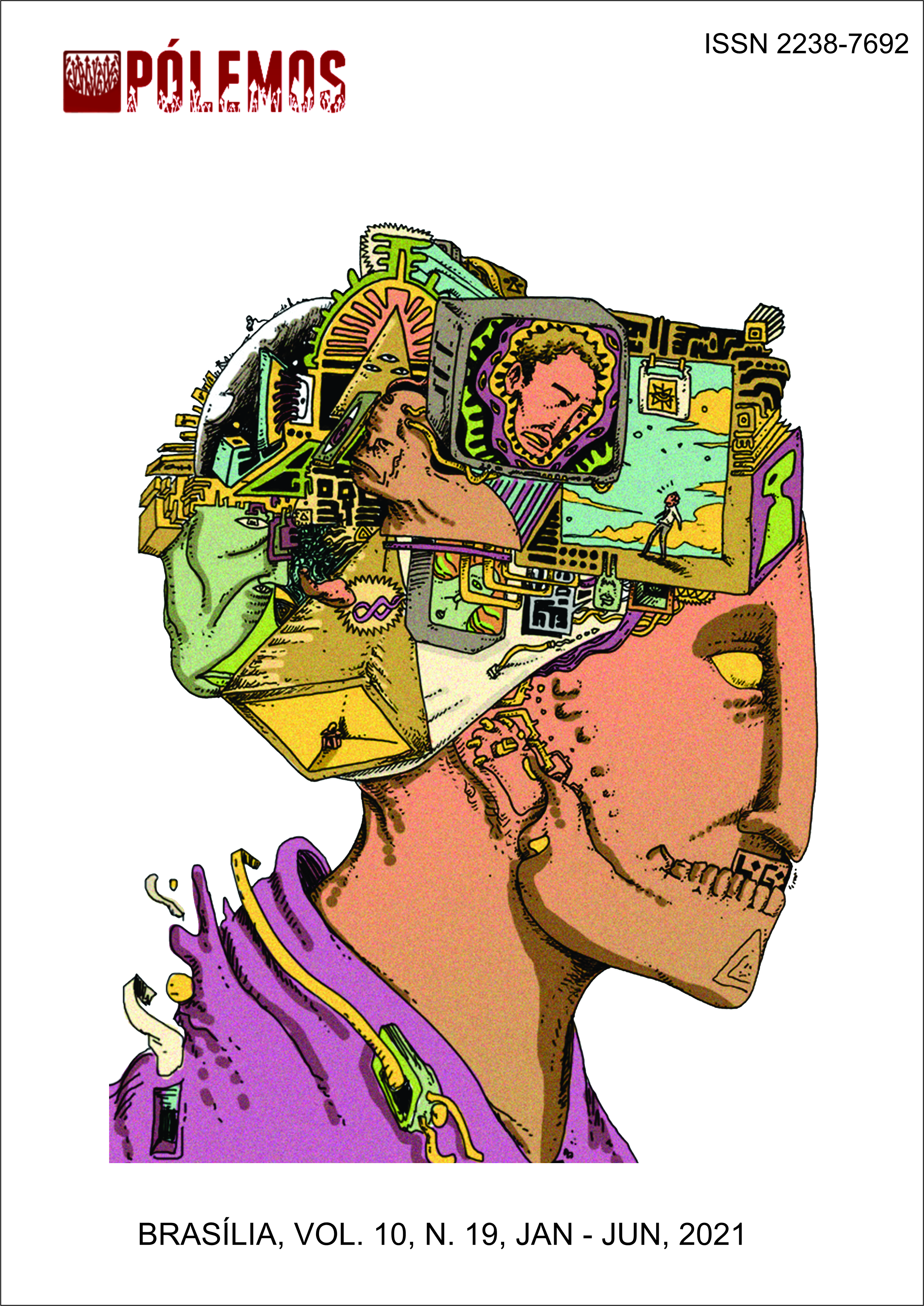MIND AND SUBJECTIVITY IN THE VEDÃNTA’S PHILOSOPHY
DOI:
https://doi.org/10.26512/pl.v10i19.33885Keywords:
VedÄnta, Mente, SubjetividadeAbstract
To talk about the mind (manas) and the subjectivity according to with Vedãnta's philosophy, implies a series of questions, of which the two most important points are: (i) the mind is considered as a sense’s organ, just like the sight; hearing, touch, smell and taste. (ii) the subjectivity does not imply a notion of subject understood as an individual separate from the Whole (Brahman), one since the principle of subjectivity (ãtman) is the same for all beings, i.e., there is no substantial difference between the alterities, what differentiates one subject from another is the ego (ahaá¹…kãra), which is an insubstantial entity constituted of name and form (nãmarÅ«pa). Therefore, we must focus primarily on these two aspects, in order to clearly understand the vedantin position about the mind and the subjectivity.
Downloads
References
BRONKHORST, Johannes. Aux origenes de la philosophie indienne. Gollion: Infolio editions, 2008.
LOUNDO, Dilip. Adhyaropa-apavada Tarka: the nature and structure of the soteriological argument in Åšaá¹…karacarya’s and Swami Satchidanandendra Saraswati’s Advaita Vedanta. In: The Journal of Hindu Studies, v. 8, i. 1. Oxford: Oxford University Press and the Oxford Centre for Hindu Studies, 2015, p. 65-96. Disponível em: <http://jhs.oxfordjournals.org/content/early/2015/02/15/jhs.hiv001.abstract>. Acesso em: 20 jan. 2018.
_____. A mistagogia apofática dos Upaniá¹£ads na Escola Não-Dualista Advaita Vedanta de Satchidanandendra Saraswati. In: Numen ”“ Revista de Estudos e Pesquisa da Religião, v. 14, n. 2. Juiz de Fora: UFJF, 2011, p. 109-130. Disponível em: <https://numen.ufjf.emnuvens.com.br/numen/article/view/1242/1398>. Acesso em: 20 jan. 2018.
_____. Ser sujeito: Considerações sobre a Noção de atman nos Upaniá¹£ads. In: Cultura oriental, v. 1, n. 1. João Pessoa: Universidade Federal da Paraíba, 2014, p. 11-18.
MĀṆḌŪKYA UPANIṢAD. In: THE EARLY UPANIṢADS: annotated text and translation by Patrick Olivelle. New York: Oxford University Press, 1998, p. 473-477.
_____. In: UPANIá¹¢ADS: a new translation by Patrick Olivelle. New York: Oxford University Press, 2008, p. 288-290.
SHARMA, Arvind. The philosophy of religion and Advaita Vedanta: a comparative study in religion and reason. Pennsylvania: Pennsylvania State University Press, 1995.
SHARMA, Chandradhar. A critical survey of Indian philosophy. Delhi: Motilal Banarsidass, 1987.
TAITTIRIÌ„YA UPANISÌ£AD. In: THE EARLY UPANIá¹¢ADS: annotated text and translation by Patrick Olivelle. New York: Oxford University Press, 1998, p. 288-313.
_____. In: UPANIá¹¢ADS: a new translation by Patrick Olivelle. New York: Oxford University Press, 2008, p. 177-193.
Downloads
Published
How to Cite
Issue
Section
License
Copyright (c) 2021 PÓLEMOS – Revista de Estudantes de Filosofia da Universidade de Brasília

This work is licensed under a Creative Commons Attribution-NonCommercial-NoDerivatives 4.0 International License.
Todos os trabalhos que forem aceitos para publicação, após o devido processo avaliativo, serão publicados sob uma licença Creative Commons, na modalidade Attribution-NonCommercial-NoDerivatives 4.0 International Public License (CC BY-NC-ND 4.0). Esta licença permite que qualquer pessoa copie e distribua a obra total e derivadas criadas a partir dela, desde que seja dado crédito (atribuição) ao autor / Ã autora / aos autores / às autoras.


